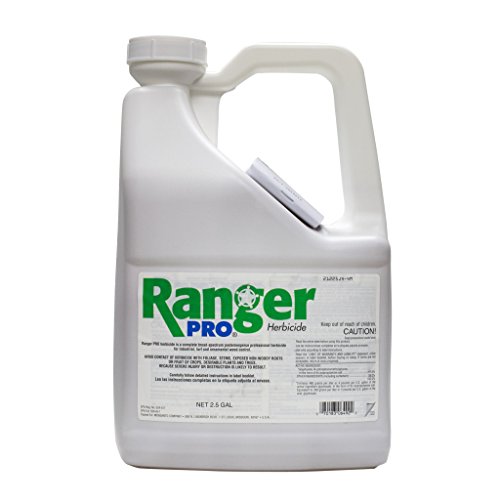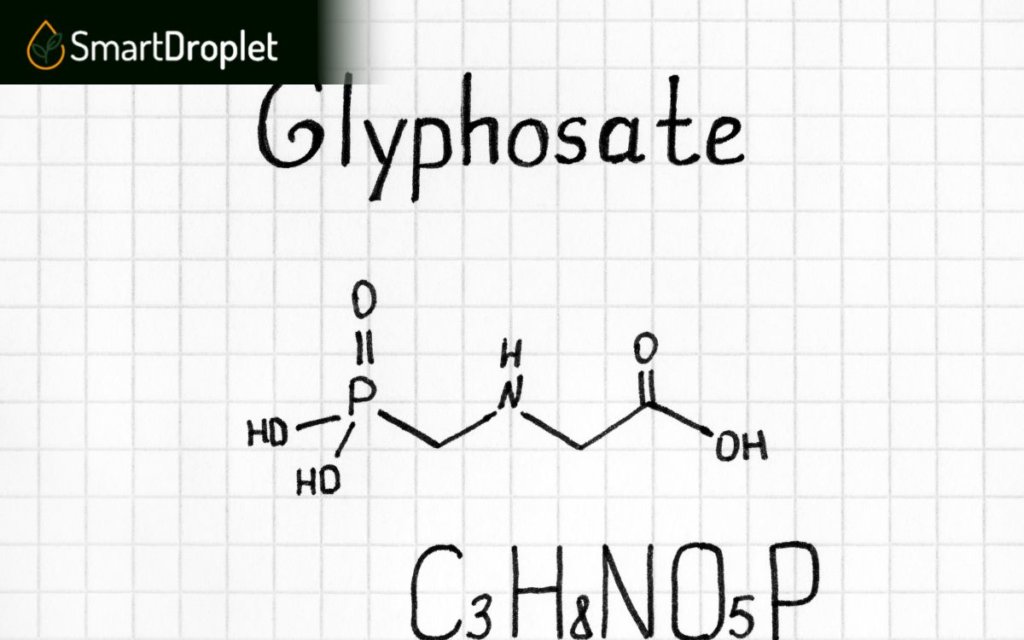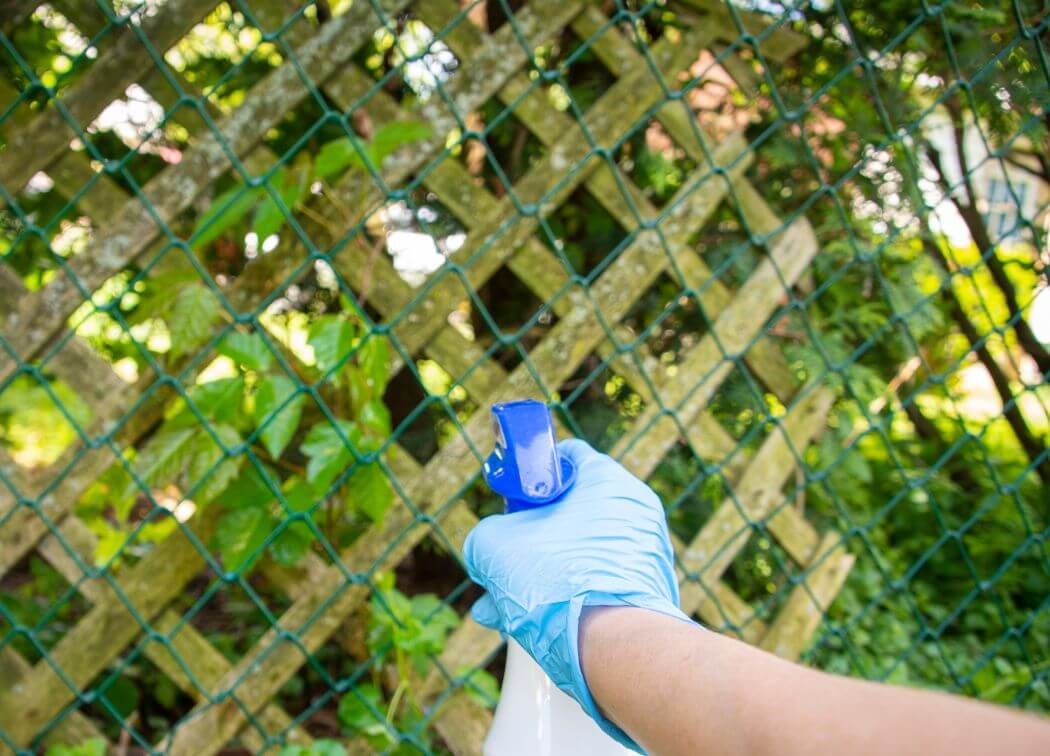Imagine dedicating so much time and effort growing your lawn only for it to get overrun by pesky weeds. This is where a strong weed killer comes in.
The best weed killers are divided into systemic, which kills all plant life it touches, and selective, targeting tough weeds. You may be tempted to use a non-selective weed killer, but this will kill plants, flower beds, and anything growing on your lawn, so we suggest you to choose a selective weed killer instead.
The three strongest selective killers are:

Ranger Pro Herbicide

Roundup QuickPro

Ortho GroundClear
The best weed killer kills weeds using Glyphosphate, one of the most effective weed killer ingredients.
This is typically used around important infrastructures like fence rows to eradicate stubborn weeds in just a few hours. Your lawn, however, may need a gentler touch.
The 3 Strongest Non-Selective Weed Killers
These systemic weed pesticides are your best bet for defeating your weeds.
1.) Ranger Pro Herbicide – Strongest Concentrate
- 41% Glyphosphate content
- Most used in Parks, Recreational and Residential Areas.
The Monsanto Ranger Pro is a non-selective herbicide that works best when diluted in water. You’ll only need 2-3 oz per gallon of water.
Once sprayed onto your plants, this will bind to your weeds and take them all out in one fell swoop.
2.) Roundup QuickPro – Strongest Powder
- Roundup QuickPro Herbicide is very effective at removing unwanted vegetation. It works on mulch beds and the like, but you must be careful of hitting desired plant growth.
- It only uses a 1.5 ounces per gallon of water mixture.
The Quickpro is made of a whopping 73.3% ammonium salt glyphosphate. This is equal to .73 lbs of gylphosphate for every pound of product.
At 72 gallons per container, you can spray it over a large area and last an entire season.
3.) Ortho GroundClear – Strongest Ready Made
- Delivers visible results in 6 hours
- Treats up to 5x greater area than the previous formulation
The GroundClear can keep your lawn weed-free for over a year and works all around the house.
It kills down to the roots thanks to its Imazapyr and Perlagonic Acid. Simply add surfactant and spray.
The Best Natural Weed Killer
Not all weed killers obliterate plant life.
While other weed killers are super concentrated, natural weed killers are a safer bet overall.
Natural Elements 30% – Nature’s Strong Weed Killer
Vinegar is one of those contact weed killers that people rarely think about. You can adapt my formula here if you want to make your mixture.
Vinegar mix is safer for everything involved. It is less dangerous than glyphosate and safer for organic material.
You can also use this 30% vinegar product that’s six times stronger than food vinegar.
- All-natural, biodegradable composition
- Great for gardening, household maintenance, and deep cleaning
- An industrial-strength solution that works in a variety of applications
Glyphosphate Symptoms When Using a Weed and Grass Killer
A lawn owner looking to use post-emergent weed killers is like a president exploring the nuclear option. You destroy your enemy (annual and perennial weeds), but at what cost?
Effective weed killers work by preventing theplant’s ability to photosynthesize.
Glyphosphate will kill grass weeds in 2 two weeks, while glufosinate will kill in 3-5 days.
It will start by turning them yellow upon contact and then brown after their life has been choked out.
The downside of strong weed killers is they do not discriminate.
While woody weeds and other garden weeds bow before their power, non-selective herbicides eliminate weeds also kill all other plants. Selective killers thus work better for lawns.
When choosing between many weed killers, systemic (non-selective) killers are the most powerful herbicides, while selective killers are more precise, if way less effective.
How Does Glyphosphate Kill Weeds?

The easiest way to explain how herbicide works is that it gets absorbed by the weed leaves and gets carried through the sap stream down to the root system, starving it of nutrients.
Broadleaf weeds and most weeds found in lawns get killed relatively easily by this grass killer. It even works against poison ivy.
Remember to use a reasonable amount!
If you find glyphosate too aggressive, applying a weed preventer may save you from having to napalm your lawn after weeds spread.



